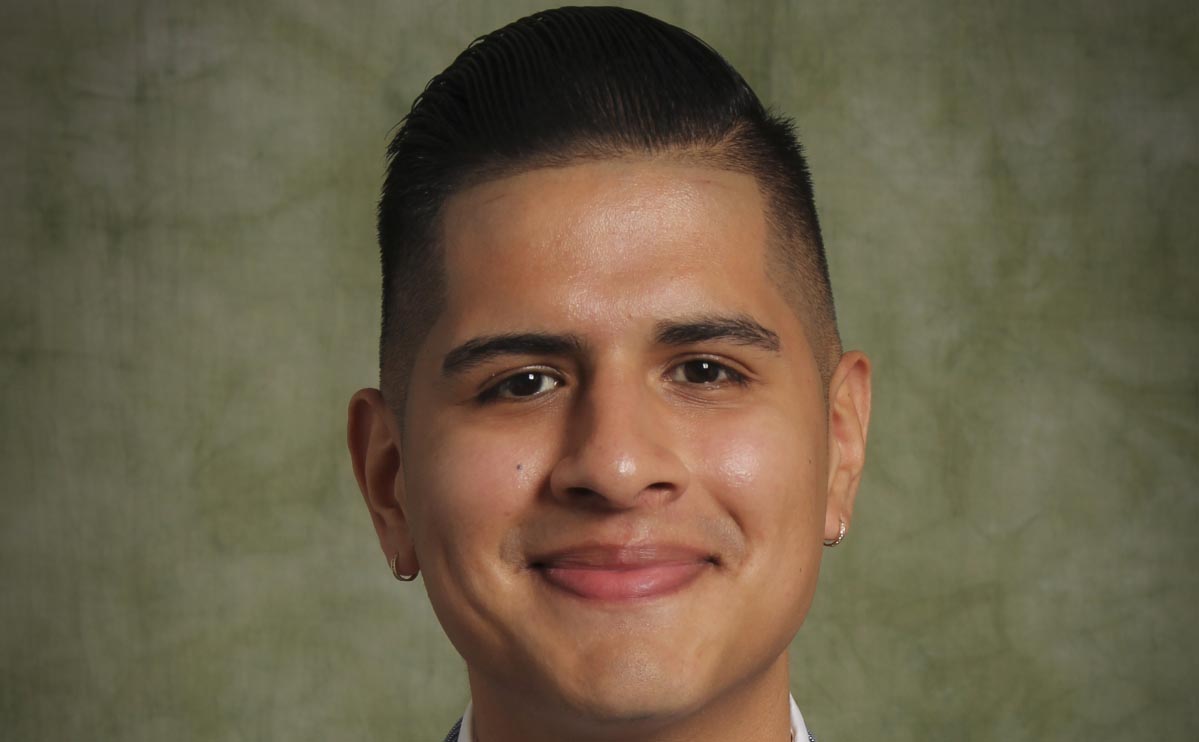New Watson assistant dean ready for ’exhilarating work’ to foster diversity and inclusion
Watson College Scholars, Diversifying Coding (D-Coding) programs are just the start

Miguel Baique knows what it’s like to overcome obstacles on the path to his education goals.
His mother emigrated with her children from Peru to New York City without knowing any English, and Baique worked 40 to 50 hours a week at a retail job during high school to provide his family with some financial stability. Sleep was a luxury he could rarely afford. He wasn’t even sure he wanted to go to college.
Today, Baique is the new assistant dean for academic diversity and inclusive excellence at Binghamton University’s Thomas J. Watson College of Engineering and Applied Science, tasked with supporting the next generation of students in historically underrepresented populations along their own journeys.
“I’m excited for something of this caliber this early in my life,” he said in a recent interview. “I get to have the autonomy to develop plans for Watson and to make a real impact. It’s exhilarating work, it’s emotional work and it’s personal.”
Baique points to the new Watson College Scholars and Diversifying Coding (D-Coding) programs as well as its recent bronze award for diversity and inclusive excellence from the American Society for Engineering Education as positive signs that Watson is headed in the right direction.
“Watson has made great strides with programming around diversity, equity and inclusion in recent years,” he said. “I am excited to build on that with my own ideas and those of my colleagues here.”
Baique found his love for multiculturalism in education soon after he arrived at SUNY Geneseo as a first-year student. As part of the Educational Opportunity Program (EOP), he received assistance through mentorship, academic programs, financial assistance, counseling/advising and other campus support services to first-generation college students and those from economically disadvantaged backgrounds.
“Ever since I arrived on that campus, I knew it was going to be a place for me,” he said. “I was surrounded by like-minded individuals who wanted to pursue something more but came from really tough backgrounds. I saw something bigger in my life — I felt much more purposeful.”
A chance encounter with a sociology professor showed him that discipline could unlock knowledge about the social world and the effects that identity and environment have on someone’s success or failure. He declared himself a sociology major, and later added a dual major in communications on the college’s intercultural track.
“I thought: What do I do to give back?” he said. “What do I do to learn about intersectional identities? How do I immerse in coursework that is challenging, but also designate it in a way that is going to allow me to explore all of what I did not know?”
Graduating with a bachelor’s degree a semester early, Baique briefly returned to the retail world in New York City but soon realized he had another calling. A call from a mentor at SUNY Geneseo led to a return to academia as a counselor for the school’s Transitional Opportunity Program (TOP), a program similar to EOP.
He later worked as an area director in Residence Life at Nazareth College and returned to Geneseo as the founding program coordinator for its McNair Scholars Program, which prepares undergraduates who are first-generation, underrepresented and economically disadvantaged for doctoral studies through involvement in research and other scholarly activities.
“Every single one of these positions offered moments and experiences that showed I needed to become a chief diversity officer,” he said. “It had been my goal for a few years, but every position was driving me toward that. I realized this needs to be my full-time job — I can’t give just 30% of my time to it.”
During that same period, he also earned his Master of Public Administration degree at SUNY Brockport and a doctorate in education at the University of Rochester. In fact, he interviewed for the assistant dean position at Binghamton on the same day he defended his doctoral thesis.
Baique knows that Watson College — with its 2,100 undergraduates and 1,100 graduate students — offers many opportunities to change students’ lives, and he’s ready to roll up his sleeves and do what’s needed to make that happen.
“Sometimes people get caught up in the buzzwords of the past few years, but they’re not buzzwords for me,” he said. “As we increase diversity, we also are retaining those students, making them feel like they’re welcome within their academic areas and giving a sense of belonging on campus. Ultimately, that’s good for Watson College and Binghamton University as a whole.”
